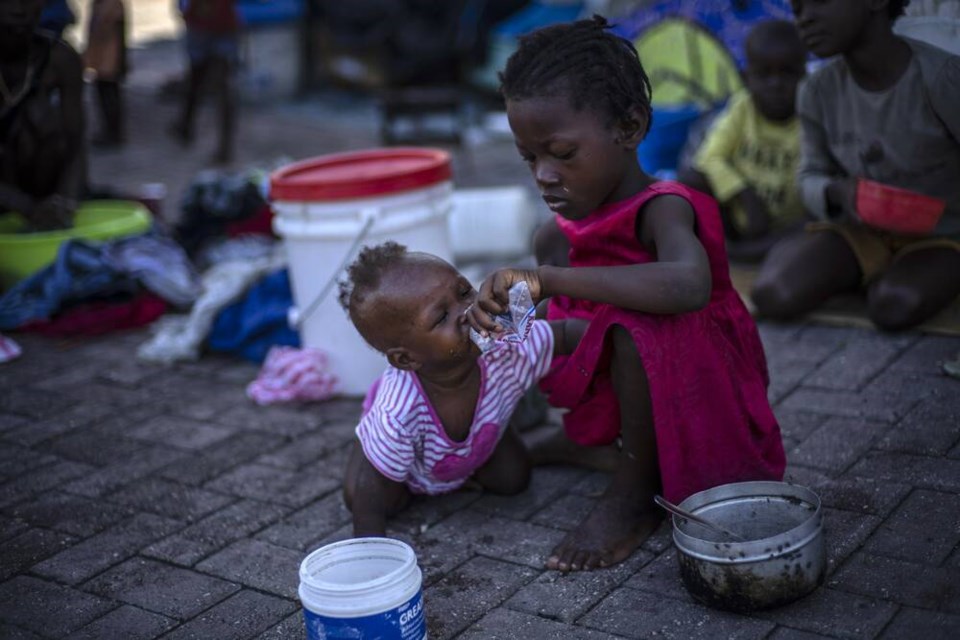A commentary by a former UN Assistant Secretary General and Force Commander UNDOF (Syria/Israel) with experience on three UN missions and who has been to Haiti. He lives in Victoria. This is the first of a two-part commentary, which will conclude in Thursday’s paper.
Prime Minister Justin Trudeau declared in 2015 that “Canada is back,” assuring allies that we’d regain our rightful place on the global stage, and actively take up our proud position as peacekeepers for the United Nations.
Since then, it’s been all talk and minimal walk.
U.S. President Joe Biden recently requested Canada lead a military mission to quell unrest in Haiti. Such appeals are not submitted or considered lightly.
After all, it is in America’s best interest that Haitian unrest does not result in the migration of thousands of Haitians to U.S. shores, compounding the migration problems on the U.S.-Mexican border.
Most of the over one million Haitian American population resides in Florida in Republican districts — and with a Republican Congress, there is considerable pressure to do something with Haiti … but not with U.S. troops.
We’re often tightly tied to U.S. interests, but the reality is that Canada will benefit from a stronger and more stable Haiti.
The Haitian population in Canada ranks fourth in the world in size. That diaspora lives mainly in key electoral regions of Montreal and Ottawa.
There is a Haitian-born Liberal MP (Emmanuel Dubourg, from Bourassa) and a former Governor General with Haitian roots. Air Canada used to have daily wide-bodied service between Montreal and Port-au-Prince.
Haiti is part of La Francophonie in which Canada and France are leading members. We are also a member of the Organization of American States (OAS) and are often viewed as a political counterbalance to the U.S. in regional affairs. Furthermore, Canada is a keen supporter of the Caribbean community of nations from economic, cultural, and immigration perspectives.
The situation in Haiti is verging on anarchy. Malnutrition and cholera are rampant. Gang violence disrupts public services. Schools, health care, and daily business have all been catastrophically affected. As of Jan. 10, the government no longer holds legitimacy because of an expired mandate. Public security is almost non-existent.
Deployments to Haiti are not new to Canada. We know the region and the challenges and have diplomatic, military, developmental and humanitarian experience from past deployments. Our ability to speak French provides leverage with the local population.
But what’s really important is that there is a persistent desire for the Canadian Armed Forces to return to what many believe are our UN peacekeeping roots. Furthermore, it is in the Canadian psyche and value system to help those in need — and Haiti needs help. More strategically, leading a UN-sanctioned multinational force would earn credit in “capital currency.”
The latter is the currency that is exchanged between nation’s capitals. A “you-scratch-my-back, I’ll-scratch-yours” credit system that has a very short “best before date.” Over the years, the bilateral relationship between Canada and the U.S. has experienced friction over softwood lumber, salmon fishing, water and other issues.
Although there is no direct evidence of these issues going away because of “tit-for-tats,” it is human nature to be a bit more tolerant of the issue of the day.
Would Canada’s agreement to lead a multinational military force in Haiti result in the Keystone cross-border pipeline being opened or lumber disputes disappearing from the table? One never knows.
But the attitude in Washington would certainly be more favourable to Canada … for a time.
So, there is a compelling argument to deploy and to try and bring peace and security to Haiti. Give them a breather to stand on their feet and seek their true potential as a nation.
However … in Part 2 on Thursday, why Canada should not deploy.



